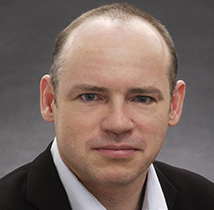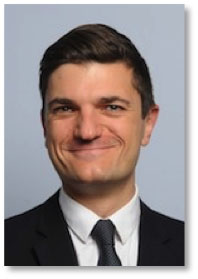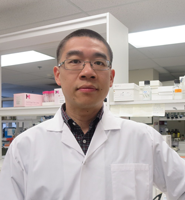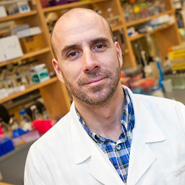Our Team
I3V Executive Committe 2025/2026
Chair: Dr. Christian Lehmann
Dr. David Kelvin
Dr. May Elsherif
Dr. Paola Marcato
Dr. Juan Zhou
Dr. Joanne Langley
 |
Dr. Christian Lehmann, MD, FRPCP, Professor, Department of Anesthesia, Pain Mgmt & Perioperative Medicine, Department of Microbiology & Immunology, Department of Physiology and Biophysics, Department of Pharmacology; Dalhousie UniversityProfessor Lehmann’s research interests include the immune consequences of local and systemic inflammation (e.g., sepsis, stroke), intravital imaging of the microcirculation in animal models and clinical studies, and the development of new pharmacological approaches for inflammation and infection. Email: chlehmann@dal.caResearch InterestsDr. Lehmann has 25 years of experience in experimental and clinical inflammation research. He established experimental intravital imaging laboratories in Berlin and Greifswald, Germany. His focus of research is the microcirculation, i.e. capillary blood flow, cell-cell-interactions, and endothelial pathology. |
 |
Dr.Bahaa Abu-Raya, MD, PhD, Division of Infectious Diseases, Assistant Professor,Department of Pediatrics , Department of Microbiology & Immunology; Dalhousie UniversityDr. Bahaa Abu-Raya, MD, PhD is an Assistant Professor in the Division of Infectious Diseases, Departments of Pediatrics and Microbiology & Immunology at Dalhousie University. He is also an Active Staff member in Pediatric Infectious Diseases at the IWK Health Centre and a Clinician-Scientist and Principal Investigator at the Canadian Center for Vaccinology. Dr. Abu-Raya’s research focuses on immunology, infectious diseases, vaccinology, immunization in pregnancy and early life, pertussis, RSV, and clinical trials. He completed his MD at the Hebrew University of Jerusalem and his PhD and clinical fellowship in Pediatric Infectious Diseases at the University of British Columbia. His work has been recognized with several prestigious awards, including the Vanier Canada Graduate Scholarship and the Michael Smith Health Research BC Award. Email: Bahaa.AbuRaya@dal.caResearch InterestsDr. Abu-Raya is a Pediatric Infectious Diseases Clinician-Scientist at the Canadian Center for Vaccinology. His research during the past decade has mainly been in the field of maternal pertussis immunization. Specifically, identifying the ideal timing of vaccination in pregnancy; the need to vaccinate during each pregnancy; the induction of anti-Bordetella pertussis antibodies in breast milk; the effect of maternal vaccination on avidity of anti-Bordetella pertussis antibodies using a novel laboratory approach; and the effects of pertussis immunization in pregnancy on infants’ vaccines immune responses. Many of the studies he has led have contributed to practice-changing immunization policies in Canada and other several countries. He has also been a leader of several consensus papers and authored textbook chapters and commentaries in the field of maternal immunization. Dr. Abu-Raya’s research program at the Canadian Center for Vaccinology uses laboratory-based cutting-edge assays that measure the functions of antibodies that are induced after vaccination and infection to answer clinically-relevant and translational questions in the field of vaccination in pregnancy to protect mother-infant dyads. His work focuses on developing and evaluating ways to improve vaccines and make them better able to fight infectious diseases. Dr. Abu-Raya is an international expert leader in his field and collaborates on several studies nationally with scientists and healthcare providers at Dalhousie University, the IWK, Nova Scotia Health, other Canadian institutions and internationally. |
Dr.Melissa Andrew, MD, MSc, Public Health, PhD, FRCPC, Professor, Division of Geriatric Medicine , Department of Medicine , Department of Community Health and Epidemiology; Dalhousie UniversityDr. Melissa Andrew is a staff geriatrician and professor of geriatric medicine at Dalhousie. She completed her MD at Dalhousie, a Masters of Public Health at the London School of Hygiene and Tropical Medicine, and her residency training in internal medicine at Dalhousie. She also completed her interdisciplinary PhD on the topic of social vulnerability in older people. Research interestsDr. Andrew’s research interests relate to frailty, social vulnerability, vaccinology and cognitive impairment. As an Associate Member of the Canadian Center for Vaccinology, she studies how frailty impacts vaccine effectiveness and outcomes of vaccine preventable infections. As an investigator in the Canadian Consortium on Neurodegeneration in Aging, she studies frailty and social context in relation to dementia. She collaborates with colleagues in primary care and social gerontology to study how models of care impact older people’s health and Quality of Life. She has been a long-time member of the Alzheimer Society of Nova Scotia Board of Directors and Research Advisory Committees and is a member of Canada’s National Advisory Committee on Immunization (NACI). |
|
 |
Dr. Lisa Barrett, MD, PhD, FRCPC, Assistant Professor, Division of Infectious Diseases, Department of Medicine, Department of Microbiology & Immunology, Department of Pathology, Dalhousie UniverisityDr. Lisa Barrett, MD, PhD, is a physician-scientist specializing in infectious diseases and immunology. She completed her BSc (Hons), MD, and PhD at Memorial University of Newfoundland. She underwent residency training at Dalhousie University, where she served as Chief Medical Resident, followed by a fellowship in Adult Infectious Diseases at the University of Toronto. She later completed a postdoctoral fellowship in the Laboratory of Immunoregulation at the National Institute of Allergy and Infectious Diseases (NIAID), NIH. Her research focuses on immunology, vaccinology, hepatitis C, chronic viral infections, aging, immune senescence, HIV, and CMV. Research InterestsDr. Lisa Barrett studies immune responses in chronic and persistent viral infections (HIV, CMV, HCV); the role of chronic viral infection in chronologic and immunologic aging; interactions between innate and adaptive immunity in chronic viral infection and the modulation of the immune response to generate therapeutic and prophylactic vaccines in persistent viral infections. Clinically Dr. Barrett is also interested in treating viral infections in underserved and incarcerated populations. External Website:The Senescence, Aging, Infection & Immunity Laboratory (SAIL) Website |
 |
Dr. Michael Bezuhly, MD, Assistant Professor, Division of Plastic and Reconstructive Surgery , Department of Microbiology & Immunology, Dalhousie UniversityDr. Michael Bezuhly is an Assistant Professor in Departments of Surgery and Microbiology and Immunology at Dalhousie University. Originally from Toronto, he speaks English, Russian and French. He completed his undergraduate degree at McGill University in 1999 and his medical degree at the University of Toronto in 2003. During his residency training in plastic surgery and in the Clinician-Investigator Program he obtained graduate degrees in Anatomy and Neurobiology from Dalhousie University and Epidemiology from Harvard University. After completing residency training at Dalhousie University in 2010, Dr. Bezuhly received additional subspecialty training in pediatric plastic surgery at the Hospital for Sick Children, and in pediatric craniofacial surgery at the Hopital Necker-Enfants Malades in Paris, France. Email: mbezhuly@dal.ca
Research InterestsDr. Bezuhly joined the IWK Health Centre in January 2012 as an attending craniofacial and plastic surgeon. His principal clinical interests include craniofacial remodeling, cleft lip and palate repair, ear reconstruction and obstetrical brachial plexus reconstruction. He is the primary plastic surgeon on the Cleft Palate Team and has helped to establish the multidisciplinary Craniofacial Clinic at the IWK. As a clinician-scientist, he has numerous peer-reviewed publications and holds several research grants. He continues to pursue the epidemiological research in which he was involved during his graduate studies at Harvard University. He also conducts laboratory research into novel treatments for abnormal scars, the link between clotting and cancer spread, and the use of stem cells to improve craniofacial healing. |
 |
Dr. Bob Bortolussi, PhD, Professor Emertius, Dalhousie UniversityResearch InterestsDr. Bortolussi is a former Vice President of Research of the IWK Health Centre and is Professor Emeritus of Paediatrics at Dalhousie University. He edited “The Handbook for Clinician Scientists” which is used in many Universities in Canada and as part of the MicroResearch Curriculum. He is a fellow of Canadian Academy of Health Sciences and President of the Global Health Section of the Canadian Paediatric Society. He is presently the editor of Clinical and Investigative Medicine (CIM). |
 |
Dr. Jeanette Boudreau, PhD, Assistant Professor, Department of Microbiology & Immunology, Department of Pathology, Dalhousie UniversityDr. Jeanette Boudreau, PhD, is an Associate Professor whose research focuses on host defense, natural killer (NK) cell biology, cancer immunology, immunogenetics, inflammation, immunoregulation, spatial biology, and humanized animal models. She earned her BSc from the University of Waterloo and completed her PhD at McMaster University. Dr. Boudreau then pursued postdoctoral training at the prestigious Memorial Sloan Kettering Cancer Center, where she deepened her expertise in cancer immunology and NK cell biology. Email:Jeanette.Boudreau@dal.caResearch InterestsWe investigate how human natural killer cell immunogenetics program immune responsiveness to cancer and infectious diseases. We use bioinformatics, humanized in vivo models, cell-signal analysis, and highly-parametric flow cytometry to understand how genetic variation creates diversity in human immune potentials. Our interdisciplinary and collaborative work aims to translate research findings into precision therapies. |
 |
Susan Bowles, Vaccinology, Dalhousie UniversityResearch InterestsMy research is largely informed by clinical practice, where research questions regarding medication use are identified at the bedside. My primary research interests involve appropriate medication use in older patients and reducing vaccine-preventable diseases in older populations. |
 |
Dr. Christine Cassidy, PhD, Associate Professor, School of Nursing, Dalhousie UniversityDr. Cassidy is a registered nurse with expertise in implementation science, evidence-based practice, and behaviour change. She completed her BScN at the University of Prince Edward Island and PhD in Nursing at Dalhousie University. Dr. Cassidy also completed a CIHR Health System Impact Postdoctoral Fellowship at the IWK Health Centre and University of Ottawa with the Integrated Knowledge Translation (IKT) Research Network. Her program of research uses an IKT approach to design, implement, and evaluate evidence-based practices and knowledge translation interventions in pediatric care. Email: ccassidy@dal.ca |
 |
Dr. Zhenyu Cheng, PhD, Associate Professor, Department of Microbiology & Immunology, Dalhousie University
Dr. Zhenyu Cheng, PhD, is a biomedical scientist whose research spans antibiotic persistence, bacteriology, cancer biology, host defense, microbial pathogenesis, and the application of genomics and proteomics. He completed his BSc at Wuhan University in China, and both his MSc and PhD at the University of Waterloo in Canada. Dr. Cheng pursued postdoctoral training at Massachusetts General Hospital and Harvard Medical School, where he advanced his expertise in microbial pathogenesis and host-microbe interactions. Email: zhenyu.cheng@dal.caResearch InterestsDr. Cheng utilizes systems biology approaches to study the pathogenesis of infectious diseases. His research is relevant to multiple I3V research priorities including antimicrobial resistance, existing and emerging microbial threats, improved diagnostics directly related to infection and immunity, and inflammation. His goal is to identify signalling components in host immunity and bacterial pathogenesis pathways that can be exploited to treat pathogenic infections and enhance host immunity. Pseudomonas aeruginosa infection and chronic inflammation in Cystic Fibrosis is a major translational research focus for Dr. Cheng. External Website: |
Dr.Jeannette Comeau, MD, MSc, FRCPC, Division of Infectious Diseases, Associate Professor, Subspecialty Program Director (Infectious Diseases) Department of Pediatrics, Dalhousie UniversityDr. Jeannette Comeau, MD, MSc, FRCPC, is a pediatric infectious diseases specialist with research interests in infection prevention and control, antimicrobial stewardship, vaccines, and pediatric health. She holds a BSc in Engineering Chemistry and an MSc from Queen’s University, and completed her MD at Dalhousie University. Dr. Comeau pursued her pediatric residency and infectious diseases fellowship at McGill University, followed by a vaccinology fellowship at the National Centre for Immunisation Research & Surveillance in Sydney, Australia. |
|
Dr.Ian Davis, MD, FRCPC, Associate professor,Division of Infectious Diseases , Department of Medicine , Department of Pathology,Dalhousie University |
|
 |
Dr.Beata Derfalvi, MD, PhD, Division Head of Pediatric Immunology, Professor, Department of Pediatrics , Department of Microbiology & Immunology, Dalhousie UniversityDr. Beata Derfalvi is a pediatric immunologist at the IWK Health Centre, Professor of Pediatrics and Head of the Division of Immunology at Dalhousie University in Halifax. She graduated, completed pediatric residency, clinical immunology and rheumatology fellowships and Ph.D. in Immunology at Semmelweis University Budapest, Hungary. She joined Dalhousie University in 2013. Dr. Derfalvi served as the Immunology Section Lead at the Canadian Allergy and Immunology Society (2019-2021), and she is currently a member of the Medical Directors at Immunity Canada patient organization and Immunodeficiency Canada. As the co-chair of the Clinical Immunology Network Canada, Inborn Errors of Immunity Registry Steering Committee, she is leading the initiative to establish a national patient registry. Dr. Derfalvi provides care for children with inborn errors of immunity, many of whom also present with autoimmune, autoinflammatory or rheumatological diseases caused by immune dysregulation. Email: beata.derfalvi@iwk.nshealth.caResearch Interests:Dr. Derfalvi’s clinical and translational research program focusses on understanding immune dysregulation in rare forms of inborn errors of immunity, and in common autoimmune inflammatory diseases, such as juvenile idiopathic arthritis. |
 |
Dr. Francesca Di Cara, PhD, Associate Professor, Department of Microbiology and Immunology, Department of Pediatrics, Dalhousie UniversityDr. Francesca Di Cara, PhD, is a molecular immunologist whose research focuses on peroxisomes, genetics, innate immunity, immune signaling, and macrophage biology, using Drosophila as a model organism. She earned both her Laurea Magistrale (equivalent to a combined BSc and MSc) and PhD from the University of Naples “Federico II.” Dr. Di Cara completed postdoctoral training as a Norman Salvesen Fellow at the University of Edinburgh, followed by several years of research at the University of Alberta, where she later served as a Research Associate and project manager. Email: dicara@dal.caResearch InterestsOur research relies primarily on the use of Drosophila, a genetically amenable model system, to elucidate the previously unexplored role of peroxisomes as signaling platforms in the innate immune response. We demonstrated the peroxisome direct involvement in immune defense, with evidence of peroxisome requirements in phagocytic pathogen clearance and innate immune signaling in immune responsive tissue in flies and mammals. Peroxisomes are essential metabolic organelles present in every eukaryotic cell. Our research program aims to define peroxisome-specific requirements during immune challenge. Specifically, we want to dissect how peroxisomes regulate innate immune signals produced by macrophages and gut cells upon infection. We focus on the role that peroxisomes and peroxisome metabolic products (lipids and reactive species) play in the Drosophila Toll and IMD immune defense pathways (orthologous to the human Toll and TNF innate immune pathways) for the resolution of infection. Defining the roles of peroxisomes in these processes has implications for our understanding of peroxisome metabolic signaling in inflammation, immunodeficiency, cancer and diabetes and opens a new unexplored field of the innate immunity. Website |
 |
Dr. Ford Doolittle, PhD, Professor Emeritus, Department of Biochemistry and Molecular Biology, Dalhousie UniversityDr. Ford Doolittle, PhD, FRS, is a distinguished biologist and philosopher of science, internationally recognized for his contributions to evolutionary biology and genomics. He earned his BA from Harvard College, PhD from Stanford University, and a BFA from NSCAD University. A member of the US National Academy of Sciences and a Fellow of the Royal Society of Canada and the Royal Society (UK), Dr. Doolittle has been a faculty member in the Department of Biochemistry & Molecular Biology since 1971. In 2020, he received a cross-appointment with the Department of Philosophy, reflecting his interdisciplinary influence in both science and philosophy. Email: w.ford.doolittle@dal.caResearch InterestsI examine prevailing concepts in genomics, molecular biology and microbial ecology, most often as these reflect understandings of evolution by natural selection. Particular concerns are multilevel selection theory, selection for differential persistence (instead of differential reproduction), holobiosis and selection on cycles and interactions, microbiology and the Modern Synthesis, origin of eukaryotes and cellular complexity, lateral gene transfer and the Tree of Life, and the meaning of “function”. |
 |
Dr. Roy Duncan, PhD, Professor and Killam Chair in Virology, Department of Microbiology and Immunology, Department of Pediatrics, Dalhousie UniversityDr. Roy Duncan, PhD, is a virologist and cell biologist whose research explores the intersections of cancer biology, virology, vaccinology, and cell-cell fusion. His work focuses on reoviruses, actin cytoskeleton dynamics, cancer cell migration, and muscle cell differentiation. Dr. Duncan earned his BSc and PhD from the University of Guelph and completed his MSc at Queen’s University. He conducted postdoctoral training at the University of Calgary, where he further developed his expertise in viral and cellular mechanisms. Email: roy.duncan@dal.ca
Research InterestsDr. Duncan’s research group discovered the reovirus fusion-associated small transmembrane (FAST) proteins, a novel family of virus-encoded fusogens that mediate cell-cell membrane fusion. His interests are focused on biochemical and biophysical analysis of the FAST proteins, cellular pathways involved in cell-cell fusion, and factors that affect actin dynamics during membrane fusion and cell migration. |
 |
Dr. Jillian Filliter, PhD, Division of Developmental Pediatrics, Assistant Professor, Department of Pediatrics, Department of Physchology and Neuroscience, Dalhousie UniversityDr. Jillian Filliter, PhD, is a clinical psychologist whose research focuses on autism spectrum disorder (ASD), particularly in relation to health care access, patient-provider interactions, and health psychology. She holds a Bachelor of Science (Honours), a Master of Health Administration, and a PhD in Clinical Psychology, all from Dalhousie University. Clinically, Dr. Filliter specializes in the assessment of ASD in school-aged children and adolescents, and is also engaged in developing mental health interventions for youth with ASD. Email: filliter@dal.ca
Research InterestsDr. Filliter is particularly interested in studying how children and adolescents with ASD access and interact with the health care system. Her primary goal is to develop system-, provider- and patient/family-level interventions that will help to ensure that the needs of youth with ASD are met within our health care system. |
 |
Alan Fine Professor, Department of Physiology and Biophysics , School of Biomedical Engineering , Department of PediatricsDr. Alan Fine, VMD, PhD, is a neuroscientist with research interests in synaptic plasticity, optophysiology, and in vitro diagnostics. He holds an AB from Harvard University and both a VMD and PhD from the University of Pennsylvania. Dr. Fine has completed extensive postdoctoral training at leading research institutions, including the National Institute of Mental Health, the Weizmann Institute of Science, Cambridge University, and the National Institute for Medical Research. Email: a.fine@dal.caResearch Interests1) Molecular, synaptic and network mechanisms of neural plasticity in learning and memory 2) Development of novel in vitro diagnostics for the point of care |
 |
Janice E. Graham, PhD, FRSC, FCAHS, Division of Infectious Diseases, University Research Professor, Department of Pediatrics , Department of Sociology and Social Anthropology
Dr. Janice E. Graham, PhD, is a medical anthropologist and health systems researcher with expertise in science and technology studies, global health, regulatory practices, and the social dimensions of vaccines, therapeutics, and aging. Her interdisciplinary work draws on qualitative research and ethnography to explore standardization, regulation, and social epidemiology. Dr. Graham earned her BA (Honours) in Anthropology from the University of Waterloo, MA from the University of Victoria, and PhD from Université de Montréal. She completed postdoctoral training in neuroepidemiology and geriatric medicine at Dalhousie University. Email: janice.graham@dal.ca
Research InterestsWorking in the field of emerging biotherapeutics and vaccines in Canada, Europe and Africa, medical anthropologist Janice Graham studies safety, efficacy, and trust in the construction and legitimization of evidence for clinical research and regulatory practice. Her research draws upon science and technology studies, health technology assessment and bioethics. She has written over 100 publications, 28 technical reports, 300 scholarly papers and presented evidence to the Science Policy Directorate, Office of Legislative and Regulatory Modernization, Parliament of Canada, World Health Organization, and United Nations on open data, public health, regulatory practice and epidemic emergency response. |
 |
Dr. Shashi Gujar, DVM, PhD, MHA, Assistant Professor, Department of Pathology , Department of Microbiology & Immunology , Department of Biology, Dalhousie UniversityDr. Shashi Gujar, PhD, is a cancer immunologist specializing in the development of innovative cancer immunotherapies. His research focuses on oncolytic viruses, applied immunomics, immuno-metabolism, and myeloma genomics. Through a translational research approach, Dr. Gujar aims to harness the power of the immune system to develop effective therapies for cancer treatment. Email: shashi.gujar@dal.caResearch Interests
Translational immuno-metabolomics and oncolytic virus-based cancer immunotherapiesSimilar to what you would read in sci-fi novels, viruses can be used to treat human malignancies. On October 27, 2015, the US Food and Drug Administration (FDA) approved the use of modified herpes virus (trade name Imlygic) for the treatment of skin cancer [similar approval was granted by the regulatory bodies in Europe as well]. This first-of-a-kind historic decision opened the doors for these modern anticancer medicines to be used in clinics. These cancer-killing viruses, known as oncolytic viruses, act through two distinct mechanisms: 1) kill cancer cells directly, and 2) educate patient's immune system to attack cancer on its own. It is now clear that such education of the immune system against cancer is the indispensable part of this innovative therapy. My laboratory specialises in harnessing the immunological benefits of oncolytic viruses. Our own research thus far has revealed that we can train the host immune system using these viruses- to not only eradicate the existing cancer cells, but also establish long-term protection against possible relapse. Thus, oncolytic viruses hold the key to promote lifelong cancer free health. To achieve this goal, we have developed cutting-edge technology platforms that leverage the latest developments in the areas of immunology, metabolism and multiOMICs. Using these innovative approaches, we are set to discover the next generation of cancer immunotherapies which will aid the prevention, diagnosis and treatment of cancers. Website |
 |
Mohammad Hajizadeh,PhD, Professor, Canada Research Chair in Health Economics, School of Health Administration, Dalhousie UniversityDr. Mohammad Hajizadeh is a Canada Research Chair in Health Economics and Professor in the School of Health Administration at Dalhousie University. He received his PhD in Economics from the University of Queensland and has held postdoctoral positions at the University of Western Ontario and McGill University. Dr. Hajizadeh received a postdoctoral fellowship from the Global Health Research - Capacity Strengthening (GHR-CAPS) Program. He was a recipient of a CIHR Fellowship award Email: M.Hajizadeh@Dal.CaWebsite |
 |
Dr. Donna Halperin, PhD, Professor, School of Nursing, St. Francis Xavier UniversityEmail: dhalperi@stfx.ca
Research InterestsDr. Halperin’s applied research program focuses on vaccine program implementation and evaluation and health policy research. She has methodological expertise in mixed methods, survey research and grounded theory. Currently she is a co- investigator with the PHAC/CIHR Canadian Immunization Research Network that was established to provide Canada with a national capacity to undertake coordinated, evaluative research to inform public health policy relating to vaccine and vaccination. She is currently a Principal Investigator on a CIHR collaborative study in Nunavut and a Co-Investigator on a Public Health Agency of Canada funded program evaluation in Prince Edward Island. |
 |
Dr. Scott Halperin, MD, Professor, Division of Infectious Disease, Department of Pediatrics, Department of Microbiology and Immunology, Dalhousie UniversityDr. Scott Halperin, MD, is a leading expert in vaccinology and pediatric infectious diseases. His research spans bacteriology, pertussis, clinical trials, immunization strategies, influenza vaccines, and vaccine program implementation and epidemiology. He earned his BS from Stanford University and MD from Cornell University, followed by a fellowship in pediatric infectious diseases at the University of Virginia and the University of Minnesota. Dr. Halperin plays a key role in advancing vaccine research and public health initiatives globally. Email: scott.halperin@dal.ca
Research InterestsDr. Halperin’s research focuses on the diagnosis, treatment, and prevention of pertussis and other vaccine-preventable diseases. |
 |
Dr.John Hanly, MD, FRCPC, Professor, Department of Medicine , Department of PathologyDr. John Hanly is a professor of medicine and pathology and director of the Dalhousie University Lupus Clinic in the Division of Rheumatology. He was the first research director for the Department of Medicine until 2019. He is an accomplished researcher with more than 120 peer-reviewed publications in subspecialty journals and 75 other publications and is a frequent presenter and guest speaker at national and international scientific meetings. Email: john.hanly@nshealth.caResearch InterestsDr. Hanly’s major research foci are pathogenic mechanisms and clinical outcomes in systemic lupus erythematosus, with emphasis on how lupus affects the brain and other parts of the nervous system. Dr. Hanly also collaborates on studies of pathogenic mechanisms in patients with rheumatoid arthritis. He belongs to several national and international research networks involving clinical studies of systemic lupus erythematosus. |
 |
Dr. Todd Hatchette, PhD, Professor; Department of Pathology and Laboratory Medicine; Chief, Division of Microbiology; Capital District Health Authority, Department of Pathology , Department of Microbiology & Immunology , Division of Infectious DiseasesEmail:todd.hatchette@nshealth.caAs the Province’s only Medical Virologist and one of the Directors of Immunology and Virology at the QEII HSC I oversee the running of the clinical virology laboratory. I also oversee the anchor laboratory for the Severe Outcomes Surveillance Project in the PHAC/CIHR Influenza Research Network (PCIRN) |
 |
Dr.Matthew Herder,LLB, JSM, Professor of Law and Medicine; Director, Dalhousie Health Justice Institute, Schulich School of Law , Dalhousie Health Justice InstituteProfessor Matthew Herder is a legal scholar specializing in health law, policy, and regulation. His research focuses on the intersection of law, technology, and society, with particular expertise in intellectual property, pharmaceutical regulation, and biotechnology. He holds a BSc (Hons) from Memorial University, an LLB and LLM from Dalhousie University, and a JSM from Stanford University. Called to the Ontario Bar in 2004, Professor Herder currently teaches in the Faculty of Medicine at Dalhousie University, covering topics such as informed consent, medical confidentiality, and the regulation of health care professionals. He also supervises research in intellectual property and pharmaceutical law. Email: matthew.herder@dal.caResearch InterestsProfessor Herder’s research interests cluster around biomedical innovation policy, with particular focus on intellectual property law and practices connected to the commercialization of scientific research. |
 |
Dr.Jennifer Isenor, PharmD, Associate Professor, College of Pharmacy , Faculty of Medicine , Department of Community Health and EpidemiologyDr. Jennifer Isenor, PharmD, is a pharmacy practice researcher specializing in pharmacist-led immunization, prescribing, and deprescribing, particularly in geriatric care. Her work focuses on enhancing the role of pharmacists in improving health outcomes through expanded clinical responsibilities. She holds a BSc in Pharmacy from Dalhousie University and a Doctor of Pharmacy (PharmD) from the University of British Columbia. Email: jennifer.isenor@dal.caResearch InterestsDr. Jennifer Isenor’s research areas include evaluation of the scope of practice of pharmacists, including immunizing and prescribing; assessing the use of drug and health information resources by students and clinicians; and geriatric-related research, with a focus on appropriate medication use, including deprescribing. |
 |
Dr.Thomas Issekutz, MD, Division of Pediatric Immunology, Professor, Department of Pediatrics , Department of Medicine , Department of Microbiology & Immunology , Department of PathologyEmail: thomas.issekutz@iwk.nshealth.caResearch InterestsDr. Thomas Issekutz provides clinical immunology care to children throughout the Maritimes through an inpatient attending and consultation service and a weekly immunology outpatient clinic. The services focus on patients with chronic immunological conditions involving primary and secondary immunodeficiencies and autoimmune processes. |
 |
Dr.Brent Johnston,PhD, Professor and Department Head, Department of Microbiology & ImmunologyDr. Brent Johnston, PhD, is a cancer immunologist whose research explores the mechanisms of immune cell trafficking, inflammation, and tumor immunology. His work focuses on cytokines, chemokines, NKT cells, and leukocyte homing in the context of cancer and immune regulation. He earned both his BSc and PhD from the University of Calgary and completed postdoctoral training at Stanford University. Email: brent.johnston@dal.caResearch InterestsResearch focuses on immune cell development, homing, and activation. We are currently studying the regulation of autoimmunity and anti-tumour immune responses by natural killer T (NKT) cells, a subset of leukocytes that bridge the innate and adaptive immune systems. |
 |
Dr. David Kelvin, PhD, Department of Microbiology & ImmunologyResearch InterestsKelvin and his research team a large part of their research in southeast Asia, where several new viruses have emerged in recent years: the severe acute respiratory syndrome (SARS) coronavirus, the H5N1 strain of avian influenza (bird flu) and the more recent H7N9 strain that can cause human infections. Being able to characterize a newly emerging influenza virus early is key to understanding whether it has the ability to spread from person to person, cause severe disease or cause a pandemic. |
Dr.Alexandra Legge, MD, FRCPC, Assistant professor, Division of Rheumatology , Department of Medicine |
|
 |
Dr. Denys Khaperskyy, PhD, Associate Professor, Department of Microbiology & Immunology, Dalhousie UniversityDr. Denys Khaperskyy, PhD, is a molecular virologist specializing in host-pathogen interactions, with a focus on influenza A virus. His research investigates how viruses manipulate cellular stress responses and RNA granules to support infection. He earned his BSc from National Taras Shevchenko University in Kyiv, Ukraine, and his PhD from the State University of New York at Buffalo. He completed postdoctoral training at Dalhousie University in Halifax, Nova Scotia.Email: d.khaperskyy@dal.ca Research Interests We study virus-host interactions with a focus on intrinsic cell defense mechanisms and their subversion by influenza viruses. Another area of interest in the lab is the biology of stress granules – cytoplasmic foci of messenger RNA-protein complexes that form in response to various types of stress, including viral infections |
 |
Dr. Morgan Langille, PhD, Professor, Department of Pharmacology , Department of Microbiology & ImmunologyDr. Morgan Langille, PhD, is a leading researcher in microbiome science and bioinformatics. His work focuses on genomics, DNA sequencing, metagenomics, and the impact of antibiotics and pharmacology on microbial communities. He earned his BSc from the University of New Brunswick and completed his PhD at Simon Fraser University, followed by postdoctoral training at the University of California, Davis. Email: morgan.langille@dal.caResearch InterestsThe focus of Dr. Langille's research is to better understand human-microbial interactions and how that can be used to improve human health. This includes leveraging novel genomic technologies and developing improved bioinformatic methods to process and integrate multi-omic data to aid in biological interpretation. These discoveries will hopefully lead to novel applications for diagnosis, therapeutics, and precision medicine. |
 |
Dr.Joanne Langley, MD, Division Head Infectious Diseases, Professor, Department of Pediatrics , Department of Community Health and EpidemiologyDr. Joanne Langley is a Professor in the Departments of Pediatrics and Community Health & Epidemiology at Dalhousie University and holds the CIHR–GlaxoSmithKline Chair in Pediatric Vaccinology. Her research focuses on vaccines, vaccine-preventable infectious diseases, respiratory infections, and child health. She also contributes to evidence-based immunization policy and communicable disease control. Dr. Langley earned her BA from Queen’s University, her MD from Dalhousie University, and an MSc in Clinical Epidemiology from McMaster University. She completed her fellowship in Pediatrics and Infectious Diseases at the University of Toronto and serves as active staff in Pediatric Infectious Diseases at the IWK Health Centre. Email: joanne.langley@dal.caResearch InterestsDr. Langley is a pediatric infectious disease physician in the Department of Pediatrics and is cross-appointed in the Department of Community Health and Epidemiology in the Faculty of Medicine. She is based at the IWK Health Centre and the Canadian Center for Vaccinology. She conducts studies on the prevention of infectious diseases using vaccines, from phase 1 (first in humans) through to efficacy trials (phase 3) and post-marketing studies of how well vaccines work when they are used in immunization programs (phase 4). These studies are done with collaborators in public health, industry, universities, and non-governmental organizations. Dr. Langley has a particular interest in prevention of respiratory infections such as Respiratory Syncytial Virus and influenza. Her work also focuses on vaccine policy and evidence-based decision making in immunization programs. She is a member of the COVID-19 Science Expert Panel, and of the Expert Group on Health Systems of the Chief Science Advisor of Canada, and a former member of the Canadian Task Force on Preventive Health Care and Canada’s National Advisory Committee on Immunization (Chair, 2007-2011), and serves as an advisor on several immunization decision making expert groups. She is an active investigator in the Canadian Immunization Research Network and leads its Clinical Trials Network (CTN). |
 |
Dr. Jason J. LeBlanc, PhD, Professor, Department of Pathology , Division of Infectious Diseases , Department of Microbiology & Immunology,Dalhousie UniversityDirector of Virology, Immunology, and Molecular Microbiology for NSH, and currently run a large diagnostics laboratory responsible for COVID-19 diagnostic testing in Nova Scotia. My research interests focus on molecular diagnostics, molecular epidemiology, and molecular pathogenesis, with application to the fields of vaccine-preventable diseases and emerging respiratory bacteria and viruses, including SARS-CoV-2, the causative agent of COVID-19. Email: jason.leblanc@nshealth.ca |
 |
Inflammation Jean-Francois LégaréResearch InterestsDr Légaré is the Head of Cardiac Surgery at the New Brunswick Heart Centre and Professor of Surgery at Dalhousie University Medicine New Brunswick located in Saint John New Brunswick |
 |
Dr.Finlay Maguire, PhD, Assistant Professor, Department of Community Health and Epidemiology, Dalhousie UniversityMy research aim is to develop and collaboratively apply data-driven methods to try and mitigate health and social crises. This is focused on two main areas: genomic epidemiology of infectious diseases and interdisciplinary health data science collaborations with experts in medicine and the social sciences. My genomic epidemiology work involves creating novel microbial bioinformatics and machine learning approaches to better understand the diagnosis, evolution, and dynamics of infectious diseases. This largely involves work with national and international public health consortia on problems related to antimicrobial resistance and, recently, the viral dynamics of the COVID-19 pandemic. The broader health data science area of my work is more varied and tries to identify and solve the data-related problems of socially/health-focused academics, non-governmental organisations, and public health groups. This includes working with local shelters to identify gaps in provision, physicians to improve healthcare access among refugees, and sociologists exploring online radicalisation. I also actively support and contribute towards the MicroResearch initiative, a multinational community-based program focused on building research capacity in the Global South and under-served Canadian communities. I hold a jointly-appointed position in the Faculty of Computer Science and the Department of Community Health & Epidemiology (Faculty of Medicine), as well as an adjunct appointment in pathogenomics at Sunnybrook Health Sciences Centre's Shared Hospital Laboratory. Email: finlay.maguire@dal.ca |
 |
Dr. Tim Mailman, MD, Division of Infectious Diseases, Associate Professor, Department of Pathology , Department of Pediatrics , Department of Microbiology & Immunology,Dalhousie UniversityEmail: tim.mailman@iwk.nshealth.ca |
 |
Dr. Andrew Makrigiannis, PhD, Professor, Department of Microbiology & Immunology, Dalhousie UniversityDr. Andrew Makrigiannis is a leading researcher in the field of innate immunity, with a focus on natural killer (NK) cell biology, MHC receptors, and NK cell memory. His work explores the roles of NK cells in cancer and infectious diseases. Dr. Makrigiannis earned both his BSc (Honours) and PhD from Dalhousie University, followed by postdoctoral training at the National Cancer Institute – Frederick (NIH). Email: amakrigiannis@dal.caResearch InterestsDr. Makrigiannis’ research focus is the innate immune system, and in particular Natural Killer (NK) cell recognition of virally-infected or cancerous cells via the polymorphic Ly49 family of class I MHC receptors and the related NKR-P1 receptor family, in order to understand the contribution of NK cell receptors to diseases for translation into clinical therapies. |
 |
Dr. Aniko Malik, MD, PhD, Division of Immunology, Assistant Professor, Department of Pediatrics, Dalhousie UniversityDr. Aniko Malik is a physician-scientist specializing in immunology, with a research focus on B cell biology, common variable immunodeficiency (CVID), rheumatoid arthritis, juvenile idiopathic arthritis, and interferon signaling. She earned her MD and completed her residency and fellowship in Clinical Immunology and Allergy at Semmelweis University in Budapest, Hungary. Dr. Malik later obtained her PhD through the Medical Research Graduate Program at Dalhousie University, where she also completed postdoctoral training. Email: Aniko.Malik@iwk.nshealth.ca |
 |
Dr. Paola Marcato, PhD, Professor, Canadian Breast Cancer Foundation-Atlantic Region Endowed Chair in Breast Cancer Research, Department of Pathology , Department of Microbiology & Immunology, Dalhousie UniversityDr. Paola Marcato is a cancer biologist with a research focus on breast cancer, cancer stem cells, and the role of non-coding RNA in tumor progression. Her work bridges cell biology and molecular oncology to explore innovative therapeutic targets. Dr. Marcato earned both her BA/BSc and PhD from the University of Alberta and completed her postdoctoral training at Dalhousie University. Email: paola.marcato@dal.caResearch interestsThe research projects in my laboratory have the long-term goal of developing improved therapeutic strategies for breast cancer based on a precision medicine approach. We use transcriptome and genome-wide functional assays, cell lines, patient-derived xenografts (PDXs), mouse tumor models, and analysis of published patient datasets to identify biomarkers, study breast cancer stem cells (CSCs) and understand factors important in breast cancer progression. |
|
Dr. Jean Marshall, PhD, Professor, Department of Microbiology & Immunology, Dalhousie UniversityDr. Jean Marshall is an immunologist whose research focuses on breast cancer, allergy, and chronic inflammatory diseases, with particular expertise in mast cell biology and innate immunity. She investigates how immune and inflammatory processes contribute to cancer progression and allergic responses. Dr. Marshall received her BSc and PhD from the University of Manchester, UK, and completed postdoctoral training at both the University of Manchester and McMaster University. Email: jean.marshall@dal.caResearch InterestsDr. Marshall has a long term interest in the biology and function of mast cells in host defence and disease. This includes study of mast cells in models of viral infection, cancer and allergic disease such as asthma and food allergy. Her work often involves multidisciplinary teams of scientists and multiple research trainees. |
 |
Dr Craig McCormick, PhD, Professor, Department of Microbiology & Immunology, Dalhousie UniversityDr. Craig McCormick is a virologist specializing in influenza, herpesviruses, and coronaviruses. His research explores viral replication, host stress responses, DNA damage, and autophagy, with applications in antiviral drug discovery and cancer biology. He earned his BSc from the University of New Brunswick and PhD from the University of British Columbia, followed by postdoctoral training at the University of California, San Francisco. Email: craig.mccormick@dal.ca
|
 |
Dr. Jason McDougall,PhD Professor, Department of Pharmacology, Department of Anesthesia, Pain Mgmt & Perioperative Medicine, Dalhousie University
Email: Jason.mcdougall@dal.caDr. Jason McDougall is a leading researcher in arthritis and chronic pain, with expertise in neurogenic inflammation, proteinase-activated receptors, and cannabinoids. He completed his BSc and PhD in Physiology at the University of Glasgow and pursued postdoctoral training at institutions in Canada, Germany, and Spain. Research InterestsUsing animal models of rheumatoid arthritis, osteoarthritis and joint injury, Dr. McDougall's laboratory employs an integrative approach to examine the role of nerves in controlling joint inflammation and pain. His laboratory uses electrophysiology to record from joint sensory nerves to investigate their activity in arthritic conditions. Joint neuropathology is tested using immunohistochemistry and electron microscopy. Inflammation of arthritic joints is assessed in his laboratory by intravital microscopy and laser speckle contrast analysis. Our aim is to identify novel drug targets to help relieve joint disease, inflammation and pain.
|
 |
Dr Shelly McNeil, MD, FRCPC,Professor, Division head/service chief,Division of Infectious Diseases , Department of Medicine , Department of Pediatrics, Dalhousie UniversityDr. McNeil is professor of medicine and clinical scholar at Dalhousie University. She is also the division head / service chief for the Division of Infectious Diseases at the Nova Scotia Health Authority and research director of the Division of Infectious Diseases. Dr. McNeil is an accomplished researcher who completed internal medicine training at Dalhousie, followed by a fellowship in infectious diseases at the University of Michigan School of Medicine. Research InterestsMuch of Dr. McNeil’s research relates to influenza immunization, including:
|
 |
Dr Alejandro Palma, MD,Division of Immunology, Department of Pediatrics,Assistant Professor, Dalhousie UniversityDr. Alejandro Palma is a pediatric immunologist with expertise in inborn errors of immunity, particularly primary antibody deficiencies, B cell physiology, and immune dysregulation. He also specializes in hereditary angioedema. He received his MD cum laude from the University of Buenos Aires in 2011 and completed his pediatric residency at Hospital de Niños Ricardo Gutierrez. He pursued subspecialty training in pediatric immunology at Hospital de Pediatría “Prof. Dr. Juan P. Garrahan,” where he also served as Chief Resident. He is certified in Pediatrics and Pediatric Immunology by the Argentine Society for Pediatrics. Email: alejandro.palma@iwk.nshealth.ca |
 |
Dr.Jeanna Parsons Leigh,Associate Professor, Killam Memorial Research Chair,School of Health Administration,Dalhousie UniversityDr. Jeanna Parsons Leigh, Ph.D. is a Sociologist and Associate Professor in the Faculty of Health at Dalhousie University. She has a cross-appointment in the Department of Critical Care Medicine, Faculty of Medicine and is a member of the Policy, Programs, and Implementation group (PPI) at the Canadian Centre of Vaccinology. She also leads the Advocacy, Health Literacy and Knowledge Transfer team within Sepsis Canada – a Canadian Institutes of Health Research (CIHR) funded national network. Her program of research is broadly focused on optimizing the delivery of health services and public health interventions for improved public (citizen, patient, family caregiver) healthcare provider and system outcomes. Specific projects currently being led by Dr. Parsons Leigh include: improving public and health system responses to the COVID-19 pandemic, documenting levels of public awareness and understandings of Sepsis in Canada for improved public health literacy, improving transitions in care for survivors of critical illness, and developing evidence informed interventions to improve equity, diversity and inclusion in medical specialties. Dr. Parsons Leigh provides mentorship to students conducting applied health services, mixed methods, and qualitative research projects. She draws from a variety of research methods in her work including institutional ethnography, grounded theory, and narrative inquiry. Email: j.parsonsleigh@dal.ca |
 |
Dr. Christopher D. Richardson,Professor and Canada Research Chair Tier1,Department of Microbiology & Immunology , Department of Pediatric,Dalhousie UniversityDr. Christopher D. Richardson is a researcher specializing in virology, cancer biology, and vaccinology. His work focuses on oncolytic viruses, tumor cell markers, and liver cancer, with specific expertise in viruses such as measles and hepatitis C. He earned his BSc, MSc, and PhD from the University of British Columbia and completed postdoctoral training at Rockefeller University and the National Institutes of Health in the United States. Email: chris.richardson@dal.caResearch interestsMy research involves the molecular biology of measles, canine distemper, hepatitis C, and hepatitis B viruses. We are particularly interested in virus-host cell receptor interactions. Many of these receptors have been found to be highly up-regulated on cancer cells and can be targeted for therapy by recombinant oncolytic viruses. |
Dr. Kathryn Slayter Adjunct appointment, Division of Infectious Diseases , Department of Medicine,Dalhousie University |
|
 |
Dr.Bruce Smith,Professor, Department of Mathematics and Statistics,Dalhousie UniversityDr. Bruce Smith is a researcher specializing in environmental statistics, statistical genetics, and bioinformatics. He holds a PhD from the University of California, Berkeley (1988), and both MSc and dual BSc degrees in Statistics and Animal Biology from the University of Calgary. Email: bruce.smith@dal.caResearch interestsFrequency domain time series and point processes, with applications to the study of sealevel, and prediction of flood risk; Statistical genetics: inference methods for quantitative trait loci, including finite mixture models; Pedigree estimation; Vaccine clinical trials. |
 |
Dr. Audrey Steenbeek,Professor & Associate Director of Research & International Affairs, School of Nursing,Dalhousie UniversityDr. Steenbeek is an Epidemiologist with expertise on Indigenous sexual health, sexually transmitted infections, Community Based Research (CBR), vaccine hesitancy and public health strategies. Dr. Steenbeek received her PhD (Epidemiology) and Masters (Nursing) from UBC and her BScN from McMaster. She holds an active nursing practice at both the local emergency department and in the north. Dr. Steenbeek is a member of the Health Policy & Knowledge Translation at the Canadian Centre of Vaccinology and a Board member of MicroResearch Email: a.steenbeek@dal.ca |
 |
Dr. Nikhil Thomas,Professor,Department of Microbiology & Immunology, Division of Infectious Diseases,Dalhousie UniversityDr. Nikhil Thomas is a microbiologist whose research focuses on microbial pathogenesis, particularly the molecular mechanisms of virulence, protein secretion systems, and the microbiome’s role in gastrointestinal diseases. He earned both his BSc (Honours) and PhD from Queen’s University and completed postdoctoral training at the University of British Columbia’s Michael Smith Laboratory. Email: n.thomas@dal.caResearch InterestsMy laboratory emphasizes a cross-disciplinary approach to studying host-pathogen interactions, using techniques in the areas of molecular microbiology, genetics, cell biology, immunology, cell structure, signaling, and protein biochemistry.s.
|
|
Dr. Jun Wang,Professor, PhD, Department of Microbiology & Immunology,Dalhousie UniversityDr. Jun Wang is an immunologist whose research explores cellular immune responses in infectious and tumor immunology. His work focuses on Chlamydia, B cells, IL-17, and inflammation, with additional expertise in vaccinology. He holds an MSc from the University of Rochester and earned his PhD at McMaster University, where he also completed postdoctoral training. Email: jun.wang@dal.caResearch InterestsProfessor Wang’s research interests include (1) understanding the role of regulatory T cells and IL-17/IL-17R axis in host responses to intracellular bacterial infection and cancer; (2) development of prophylactic and/or therapeutic vaccines against infection and cancer. |



